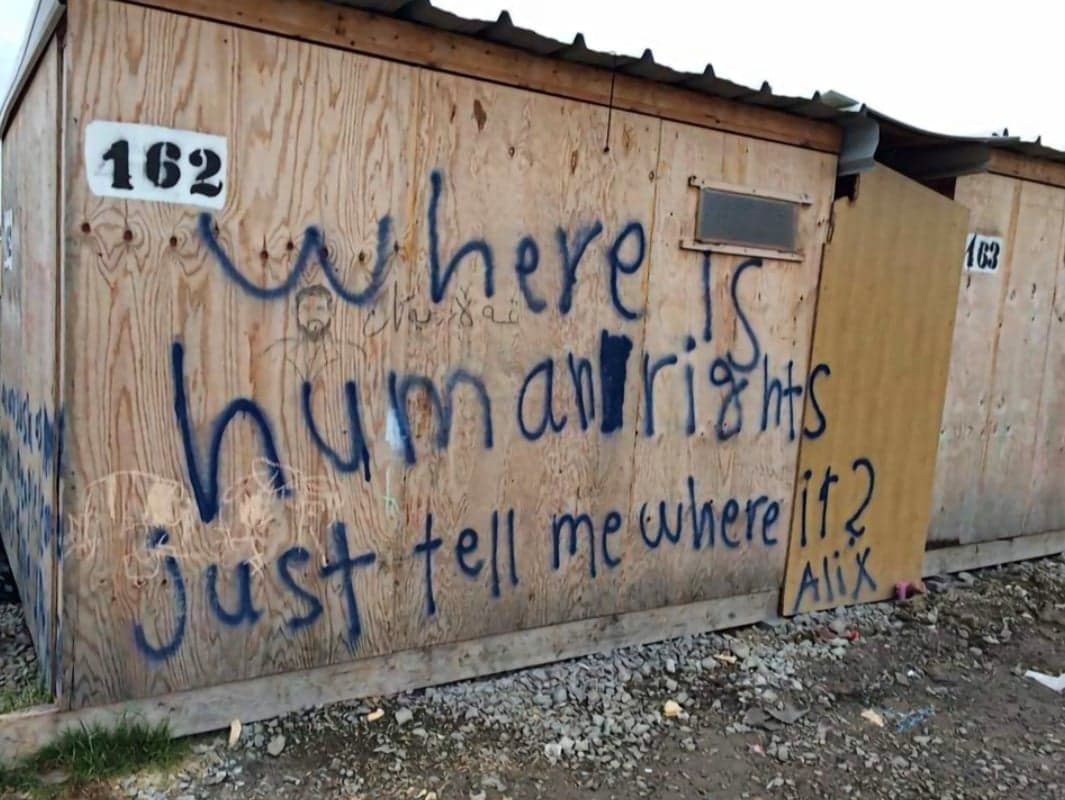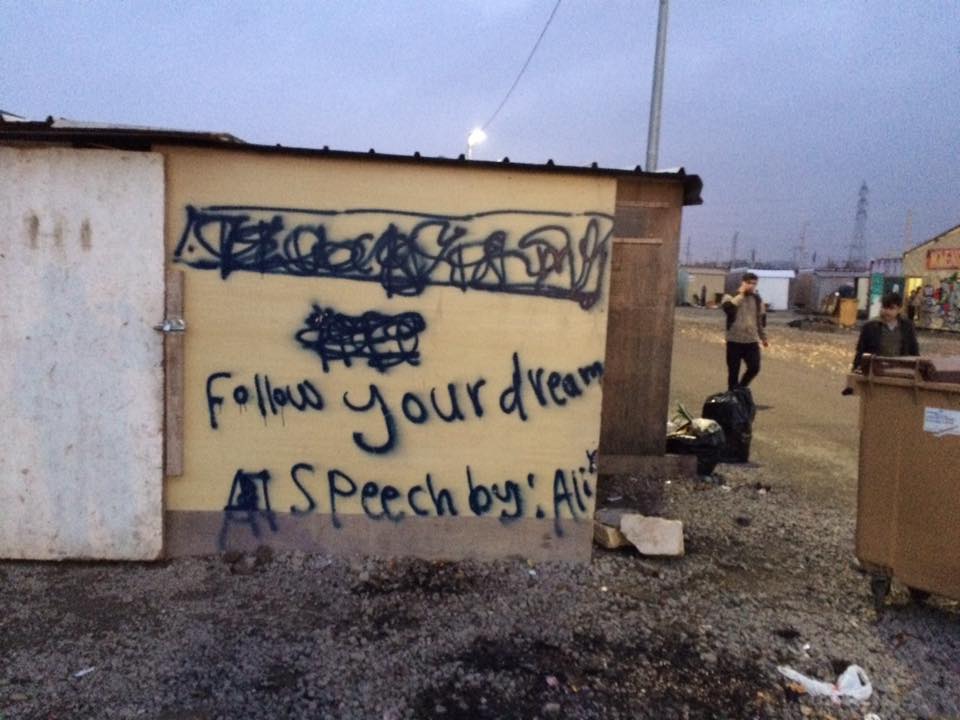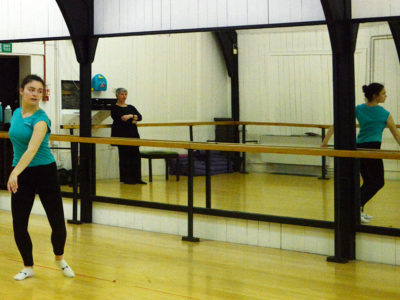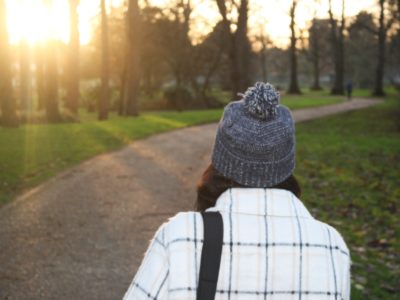A helping hand
There are a variety of charities in the South Wales area that can assist refugees in times of struggle:
The Trinity Centre
The Trinity Centre, just off Newport Road in Cardiff is a church-run organisation that offers sanctuary for those in need, such as the homeless, refugees and asylum seekers.
The centre looks to bring down the barriers that separate the community by establishing respect and trust.
Trinity Centre
Four Elms Road
Piercefield Place
Cardiff
CF24 1LE
Oasis Cardiff
Oasis in Cardiff is a non for profit charity that looks to help asylum seekers and refugees in Cardiff and surrounding areas.
The aim of the centre is to integrate refugees into the local community whilst offering a safe place to socialise, eat and gain advice.
69b Splott Rd
Splott
Cardiff
CF24 2BW
Bethel Community Church
Bethel Community Church in Newport provides support for refugees and asylum seekers to socialise, volunteer and also to promote positive wellbeing.
The church also runs free English language classes for men and women which enable refugees and asylum seekers to fight social exclusion.
Bethel Community Church
C/O The Gap Centre
42 Stow Hill
Newport
South Wales
NP20 1JG
UK asylum seekers are more likely to suffer poor mental health than the general public. Are Welsh charities helping female refugees?

Expressive graffiti on a makeshift building at Grande-Synthe migrant camp, image courtesy of Dan Jewson
A British woman that is a victim of domestic abuse visits their local GP and often leaves with an offer of counselling and legal protection. However, a female refugee or asylum seeker who has been a victim of trafficking or female Genital Mutilation suffers in silence, most likely because they can’t communicate through the language barrier.
Circumstances like this will cause long-term psychological damage to those under refugee or asylum-seeking status in Wales.
Research by The Mental Health Foundation confirms that asylum seekers in the UK are five times more likely to experience poor mental health than the general population, and more than 61% will experience serious mental distress. However, the data also shows that refugees are statistically less likely to receive support than the general population.
Further research by The Welsh Refugee Council explains that Great Britain has just 1% of the world’s refugees, with Wales home to around 8% of the UK’s allocation.
But what exactly is South Wales doing to assist refugee women suffering from psychological damage caused by displacement and circumstantial poverty?
Turning to Charity
Oasis, based in Splott, offer help to female refugees and asylum seekers.
Tess Seymour, marketing and communications officer at Oasis says, “A lot of women find it intimidating when they come in, they may have trauma from violence or trafficking, this is why we have women-only sessions.
“We have a regular female hairdresser in a separate room so women can take off their head scarfs in privacy. A beautician also attends the sessions to do manicures. This is about women getting together, without language barriers,” she explains.
“We are unable to offer services specifically for mental health, due to training and funding”
Oasis offers the women basic cosmetic and physical services most people take for granted.
Tess explains, “We have a wardrobe with free clothes to people who need them. We also have loads of sanitary towels and feminine products for those who are experiencing the effects of poverty.”
However, when asked about what support is in place for female refugees below the surface level, Tess confirms, “When it comes to psychological aftercare I don’t think there is a lot out there. We are unable to offer services specifically for mental health, due to training and funding.”

The team at Oasis offer a variety of services that help refugees and asylum seekers in Cardiff
This reinforces that the issue of mental health for refugees and asylum seekers is not being addressed because of poverty in the system, a lack of resources, training and funding.
The team at Oasis offer a variety of services that help refugees and asylum seekers in Cardiff
Does the mind matter to Cardiff?
It is impossible to estimate the exact number of asylum seekers and refugees in South Wales because of the illegitimate and extreme means many go to to arrive in the UK.
“I am not aware of any psychological aftercare. The focus is that the basic needs are being met”
Rajma Begum, national BME diversity officer at Wales Council for voluntary Action has a clear view of how institutional poverty is affecting the support available to female refugees and asylum seekers. She explains, “organisations that support refugees are really stretched, so more support should be available and not just limited to those organisations.”
In addition, Rajma says, “I am not aware of any psychological aftercare. The focus is that the basic needs are being met – food, shelter – and then refugees are left on their own. I feel it is really important to offer counselling to women who have witnessed trauma and horrifying events.”
What essential items can be donated to help improve the quality of life for refugees?
A deeper look
There is no way to quantify the exact number of refugees and asylum seekers in the UK who will be suffering from the long-term effects of mental health.
It is estimated that most female refugees will experience some kind of violence prior to their arrival in Great Britain, and often with no source of regular income, it becomes very difficult for refugees to obtain professional counselling.
The Welsh Refugee Council in Cardiff, offer a programme specifically designed to enable women to talk about their struggles with mental health as a direct result of displacement, war, and poverty.
Althea Collymore, communications officer at The Welsh Refugee Council explains, “We deliver legal advice and support on issues of sexual violence, trauma, domestic violence, torture, trafficking, forced marriage, and female genital mutilation.
“We advocate and make representations on the women’s behalf whenever necessary, and build relationships with women that contribute towards their development and wellbeing.”
Charities such as The Welsh Refugee Council have become a lifeline to women suffering from the psychological hardship associated with poverty and violence.

Messages of hope sprayed on the wall of a temporary building, photo credits Dan Jewson
Many charities in South Wales focus on the physical aspects of poverty such as clothing, shelter, and food. However, due to poor funding and training, most are unable to offer help with mental health.
It is clear that in order to address the lack of mental health services for female refugees and asylum seekers, more awareness and training should be offered to the charities willing to donate the time.
A helping hand
There are a variety of charities in the South Wales area that can assist refugees in times of struggle:
The Trinity Centre
The Trinity Centre, just off Newport Road in Cardiff is a church-run organisation that offers sanctuary for those in need, such as the homeless, refugees and asylum seekers.
The centre looks to bring down the barriers that separate the community by establishing respect and trust.
Trinity Centre
Four Elms Road
Piercefield Place
Cardiff
CF24 1LE
Oasis Cardiff
Oasis in Cardiff is a non for profit charity that looks to help asylum seekers and refugees in Cardiff and surrounding areas.
The aim of the centre is to integrate refugees into the local community whilst offering a safe place to socialise, eat and gain advice.
69b Splott Rd
Splott
Cardiff
CF24 2BW
Bethel Community Church
Bethel Community Church in Newport provides support for refugees and asylum seekers to socialise, volunteer and also to promote positive wellbeing.
The church also runs free English language classes for men and women which enable refugees and asylum seekers to fight social exclusion.
Bethel Community Church
C/O The Gap Centre
42 Stow Hill
Newport
South Wales
NP20 1JG





